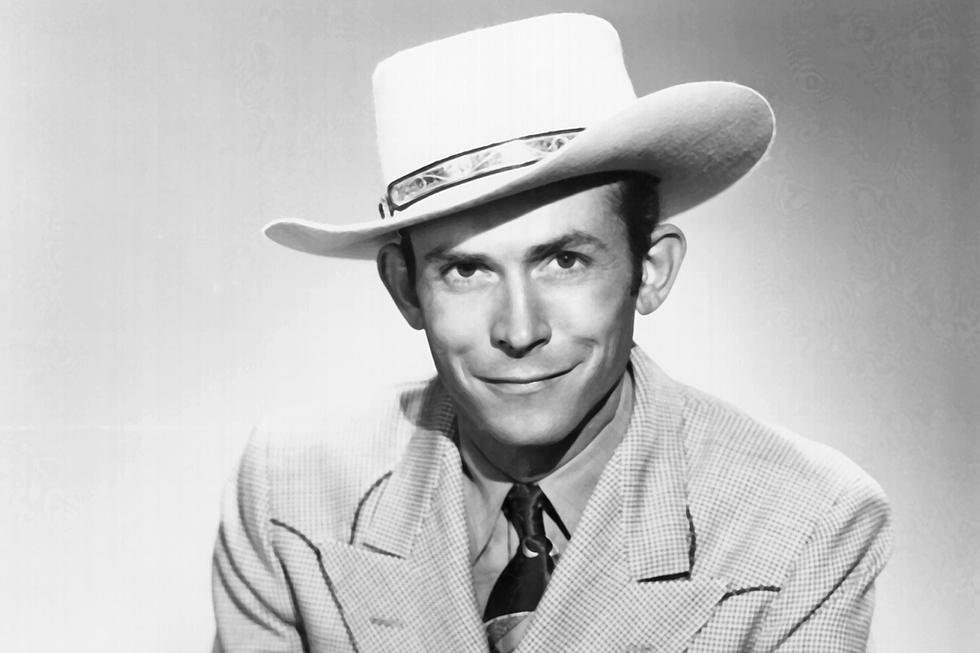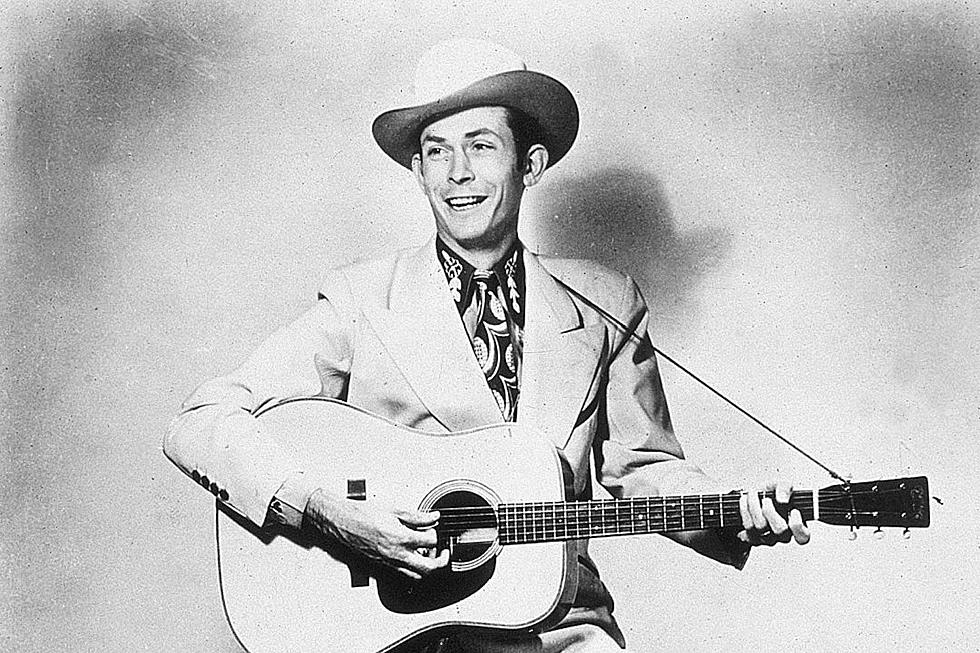
What If Hank Wanted to Do It This Way?
Timbaland, Whisperin’ Bill Anderson, John Fogerty and Brad Paisley discussed the speckled history of cross-genre collaborations during interviews focused on Paisley’s new Love and War album. The three men join Mick Jagger and Johnny Cash (via John Carter Cash) as contributors on the album.
There’s something fundamentally wrong with the “I don’t think Hank done it this way” argument. What if he (quietly) wanted to?
You can boil down this debate about how much pop is in country music today and whether our biggest stars should be collaborating with hip-hop stars to that line from Waylon Jennings’ “Are You Sure Hank Done It This Way,” a No. 1 country hit in November 1975. Jennings was supposedly lamenting rhinestones replacing rugged denim and a slicker sound that had become popular a the time*. Eric Church took it to a new generation with “Lotta Boot Left to Fill,” a 2009 album cut from Carolina that goes:
“I don’t think Waylon done it that way / And if he was here he’d say, Hoss, neither did Hank.”
“Hank” in many ways (and certainly for the purpose of this article) is a metaphor used to represent traditional country values. He may not have wanted to polish his sound or collaborate with famous R&B and pop artists of the time. Or he may have. Whisperin’ Bill Anderson did.
I don’t know if we would have (been able to find common ground) if we hadn’t witnessed collisions in our formats that went badly.
"A lot of restrictions were thrown up that prevented us from doing creative things that we might otherwise have done," Anderson tells Taste of Country. "I’d love to go back with the climate being what it is today. Man I’d love to have made a record or done something with Waylon Jennings or Willie Nelson or Johnny Cash or the people that I was around a lot."
Specifically, Anderson is referring to how contracts were structured. Getting record labels to play nice is a challenge today, but 40, 50 and 60 years ago it was a non-starter. "For example," he says at a media event to talk about Brad Paisley’s Love and War album, "when I first came here I couldn’t write with another writer unless he was with the same publishing company that I was with." That’s hard to imagine today.
"I’d loved to have worked with someone like Fats Domino," the 79-year-old Country Music Hall of Famer adds. "He had a lot of country feel … that would have been fun, but we couldn’t do those things back then."
There's a long list of country artists who were told at some point they aren’t "real country." The label was lobbed at George Strait and Kenny Rogers. Reba McEntire heard it at some point, and of course modern troubadours like Luke Bryan, Florida Georgia Line, Sam Hunt and every female under age 40 live with it as a fact of life.
Paisley’s new album includes collaborations with Anderson (“Dying to See Her”), Mick Jagger, John Fogerty and hip-hop producer Timbaland. It’s a dynamic project, but he still finds a thread to tie everything together. The Timbaland tracks (“Grey Goose Chase” and “Solar Power Girl”) don’t stand out because the two men searched for a place where country and hip-hop meet and found bluegrass (Paisley jokingly calls it “Grasshop”).
“I don’t know if we would have (been able to find common ground) if we hadn’t witnessed collisions in our formats that went badly,” Paisley says with a candor unique to him. “That hip-hop, bluegrass syncopation of beats — (Timbaland) was brilliant to bring that up.”
“Everything, when you’re the first of its kind, it takes a little bit of time to hit people the right way,” Timbland remakrs when asked if this kind of collaboration could have happened 10 or 15 years ago. He's right. We've evolved. There is truly something that separates what he did with Paisley, and before that Keith Urban on the Ripcord album, from more brash attempts to marry the genres. Nelly’s inclusion on FGL’s Cruise and Ludacris adding a verse to Jason Aldean’s "Dirt Road Anthem" were gimmicks aimed at pushing the song toward a new audience. Go back further to find Tim McGraw and Nelly on “Over and Over.” It was a moment, but not one anyone tried to force on country radio.
To further illustrate this level of marketing savvy, look at two of the biggest pop albums of the last 12 months. Both Beyonce's Lemonade and Lady Gaga's Joanne had "country" songs on them — or at least that is what we were told. No one who gave either "Daddy Lessons" or "A-Yo" an honest listen could claim as such with confidence, but that didn't stop the country media from running with it, which marketed their albums to a new audience.
See the Top 7 Country-Rap Collaborations of All Time
Paisley and Urban's inclusion of Timbaland (and Little Big Town's whole album with Pharrel Williams) isn't that. It's higher art, and as such there isn't the requisite anger that FGL have experienced and are still experiencing ("God, Your Mama and Me" features the Backstreet Boys). Could we have gotten to this point much sooner had the climate been a little different during Anderson's time as a hitmaker? Fogerty offers some perspective by conceding that this type of collaboration wasn't possible during his peak years, but to work around it, he and his friends would stage a concert somewhere and do a live album.
"I don’t think people thought of it quite like they do now," he acknowledges. "It’s fun, it’s engaging to have people hearing what Brad has done with me and Mick and Timbaland … there’s an acceptance, let’s say. People revere that collaboration."
Timbaland (best known for producing Justin Timberlake, Ludacris and more) offers a bleak forecast for those nostalgic about the way "Hank" did it. "I think those time are over," he insists. "I think we live in a new millennium. I think music is music."
Country may not quite be there yet (we are still a CD-buying format, after all) but it's hard to argue with his point that artists like Hunt and Florida Georgia Line are the future. Beyond that, he says, it's the people who are growing up with those artists as their teachers to keep an eye on.
"The new generation is open to everything," he says.
*Listen deeply to Jennings' song and find a more complex, if not confusing statement on the day's version of modern country music. It's not clear who is doing the lamenting at times, and in the end he both embraces and distances himself from Hank Williams' style and legacy.
The 100 Greatest Country Albums Ever! Who’s Your No. 1?



